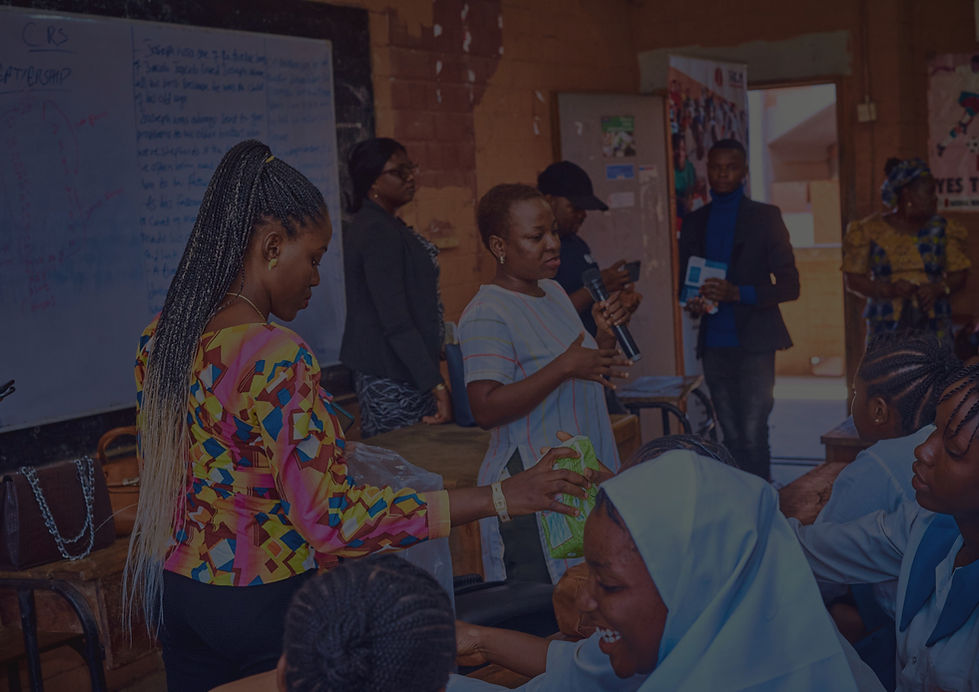Every day, we hear stories around us and on the internet about the unfortunate consequences that befall young people due to the wrong decisions they make regarding their sexual health. These mishaps range from being in toxic or abusive relationships to rape cases and even death. Studies have shown that these negative outcomes, including sexually transmitted diseases and unwanted pregnancies, have a high prevalence, with African nations ranking among the highest. This can be attributed to a significant gap in knowledge concerning sexual health among girls in Africa, despite efforts made by African countries to implement comprehensive sexuality education.
In light of this and the rapidly changing 21st-century environment, comprehensive sexuality education (CSE) has emerged as a vital component in empowering young people, particularly in the African context. From combating unwanted pregnancies and sexually transmitted diseases to promoting healthy relationships, consent, and gender equality, CSE plays a significant role in shaping the future of African societies.
Key Components of Comprehensive Sexuality Education
CSE involves learning about the cognitive, emotional, physical, and social aspects of sexuality. It aims to equip young girls with knowledge, skills, attitudes, and values that will empower them to:
-
- Realise their health, wellbeing, and dignity.
-
- Develop respectful social and sexual relationships.
-
- Consider how their choices affect their own wellbeing and that of others
-
- Understand and ensure the protection of their rights throughout their lives
It delivers age-appropriate, culturally sensitive content that caters to the requirements of both genders, which is important for adolescent girls at all stages of development. Additionally, it imparts communication, negotiating, and decision-making skills related to sexual health issues.
Benefits of CSE
The importance of delivering sexual health education to adolescent girls and boys cannot be overemphasised. In its implementation, the burden of negative sexual outcomes would be greatly reduced, thereby promoting the release of more informed and healthier girls into society. Psychologically and socially, it provides a better understanding of consent and healthy relationships, reducing incidences of sexual assault and gender-based violence. Additionally, by making well-informed decisions, girls can improve their mental health, leading to a higher proportion of stable young people in our region. The advantages of sexual health education for the economy and education are indisputable, leading to higher school graduation rates and employability and enhancing family and continental economic conditions.
Overcoming Challenges and Resistance
The path to providing quality sexual health education is not without obstacles. Social concerns about the harmful effects of sexual education, feelings of shame and embarrassment, reluctance to discuss sexual issues in public, sexual discussion as a socio-cultural taboo, families’ ignorance, and other socio-cultural and religious barriers are on the rise. There is also a lack of trained educators and resources. To overcome these challenges, we need to address cultural and religious concerns by promoting positive narratives and destigmatising discussions about sexual health. Parents, teachers and community leaders need to be involved and engaged during sexual health education campaigns. Support and training should be provided for teachers to ensure adequate and accurate dispensation of information to students and youths. Policies regarding sexual health and its education ought to be developed and thoroughly implemented by the government, policymakers and educational authorities.
In conclusion, this is a call to action for lawmakers, educators, communities and individuals alike. Through comprehensive sexual health education, we can pave the way for a future where African youth are empowered with the knowledge and skills necessary to navigate their sexual and reproductive lives responsibly and confidently.
Sources:
Comprehensive Sexuality Education in Sub-Saharan Africa. APHRC. December 2019. Accessed 9th June 2024
Coming of age in the classroom: Religious and Cultural Barriers in Comprehensive Sexuality Education ARROW. 2017. Accessed 9th June 2024
Written by Jane Audu
Reviewed by Dr MaryJane Nweje (MBBS, MSc)


